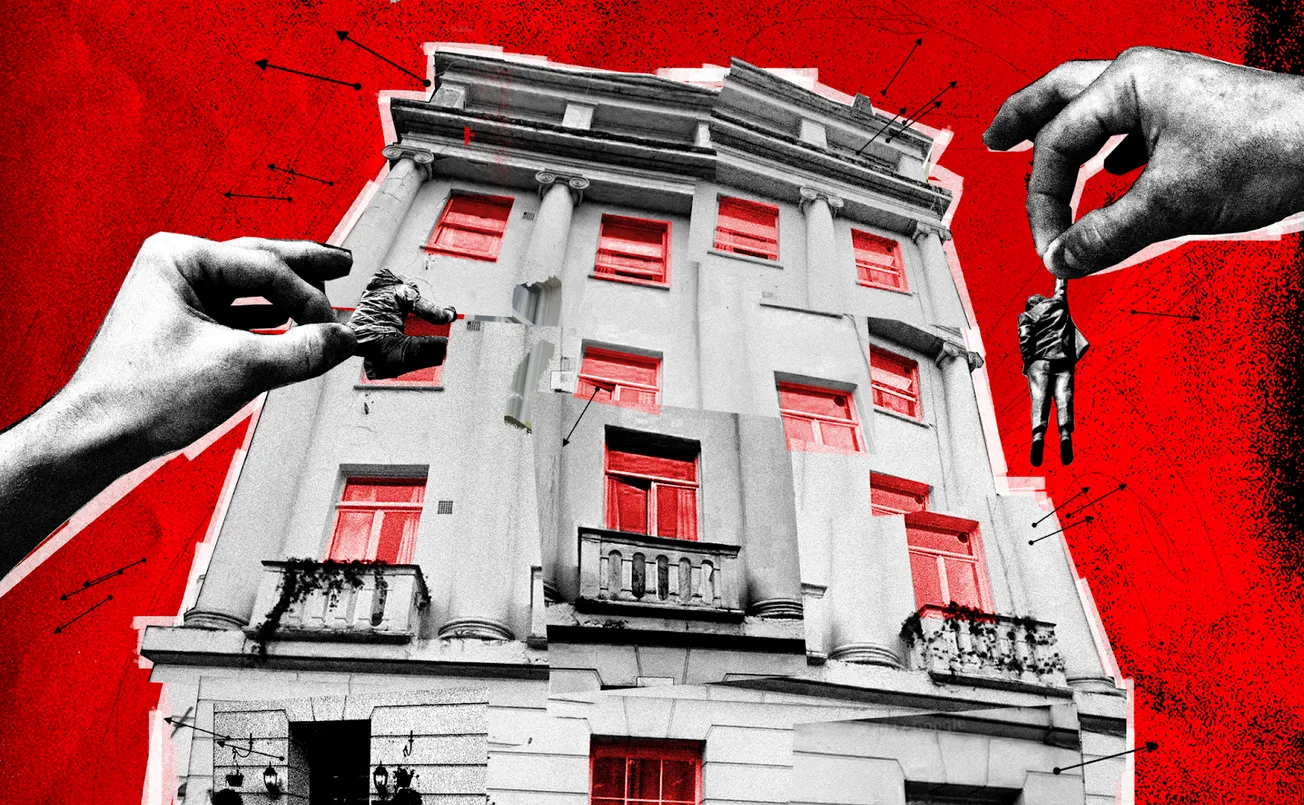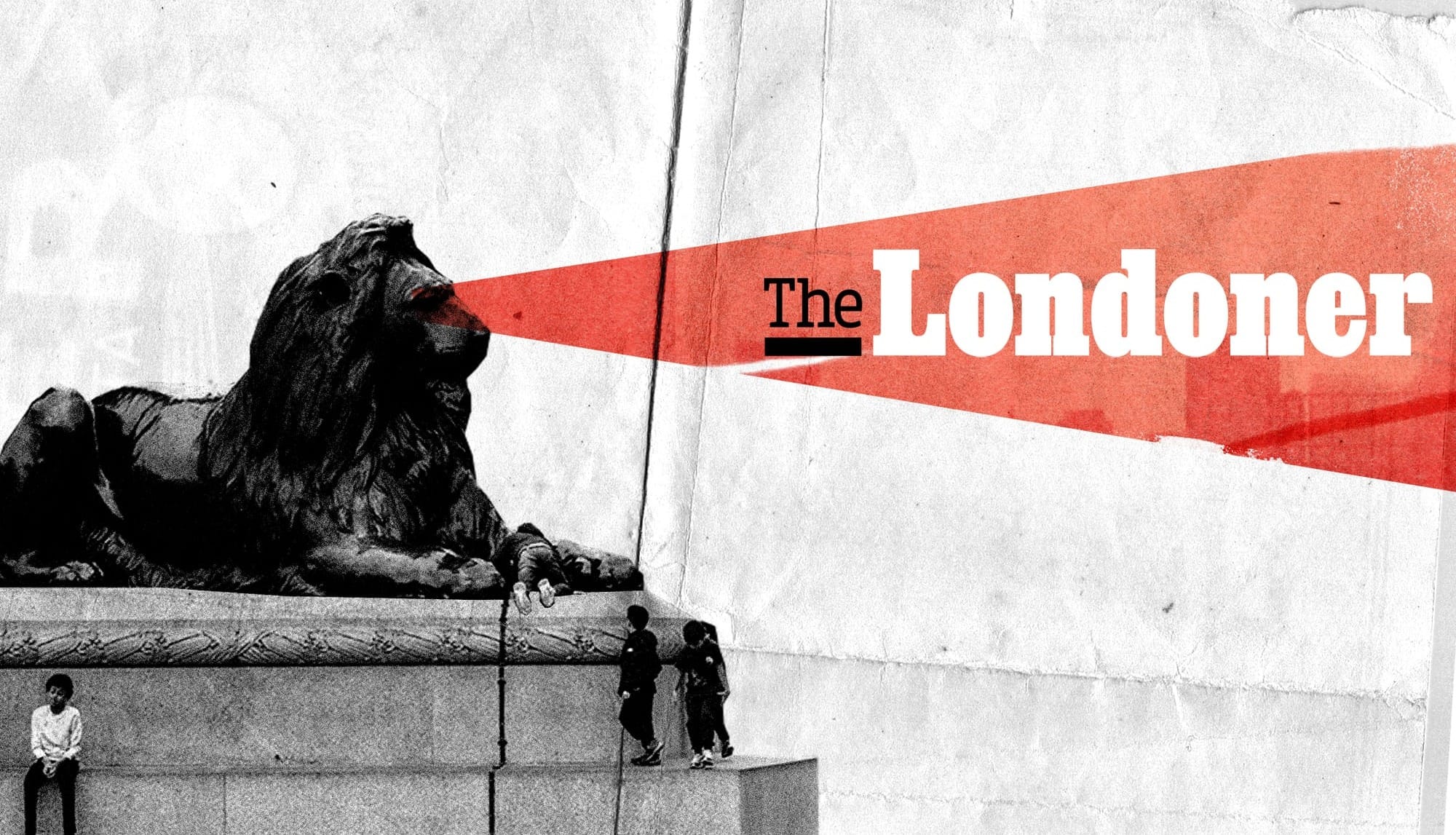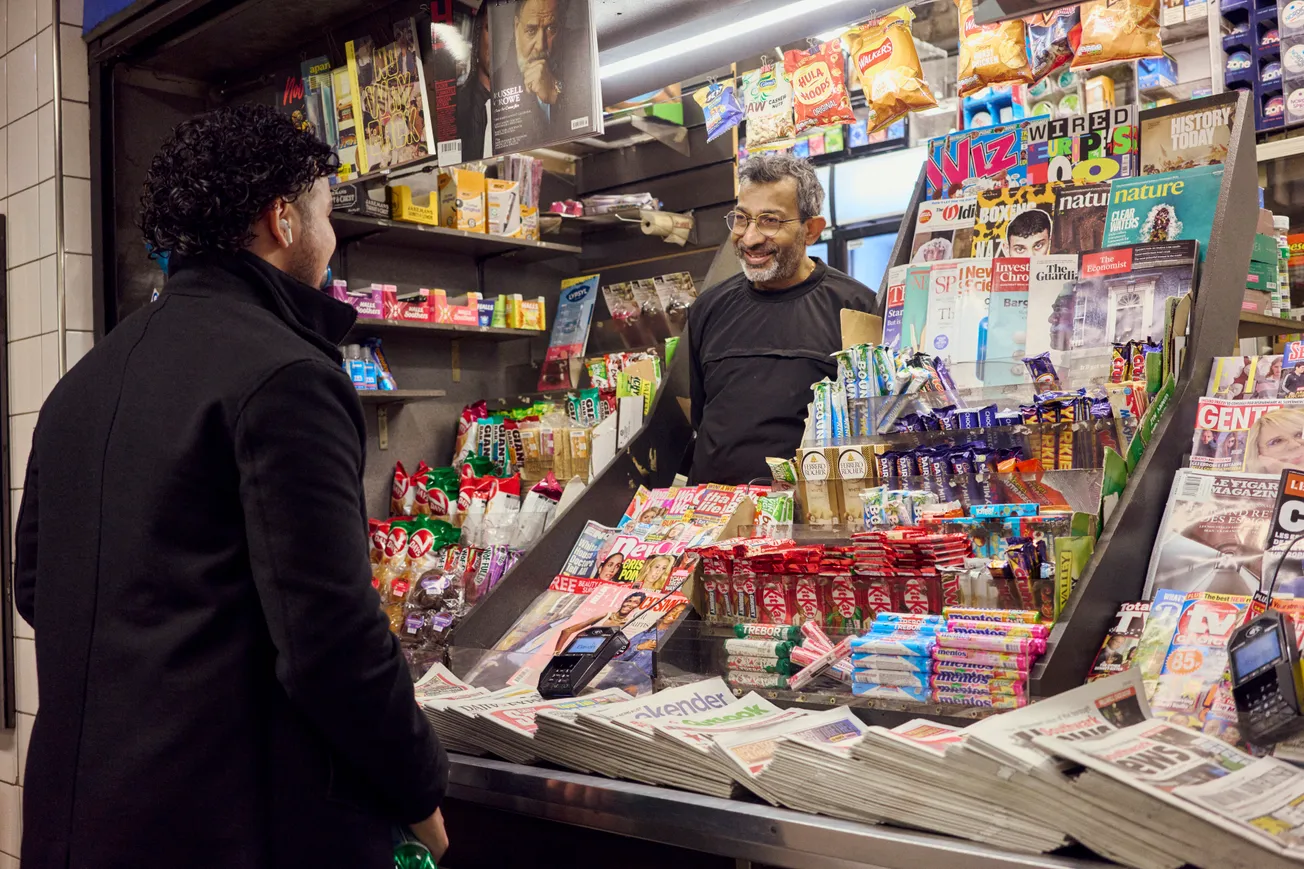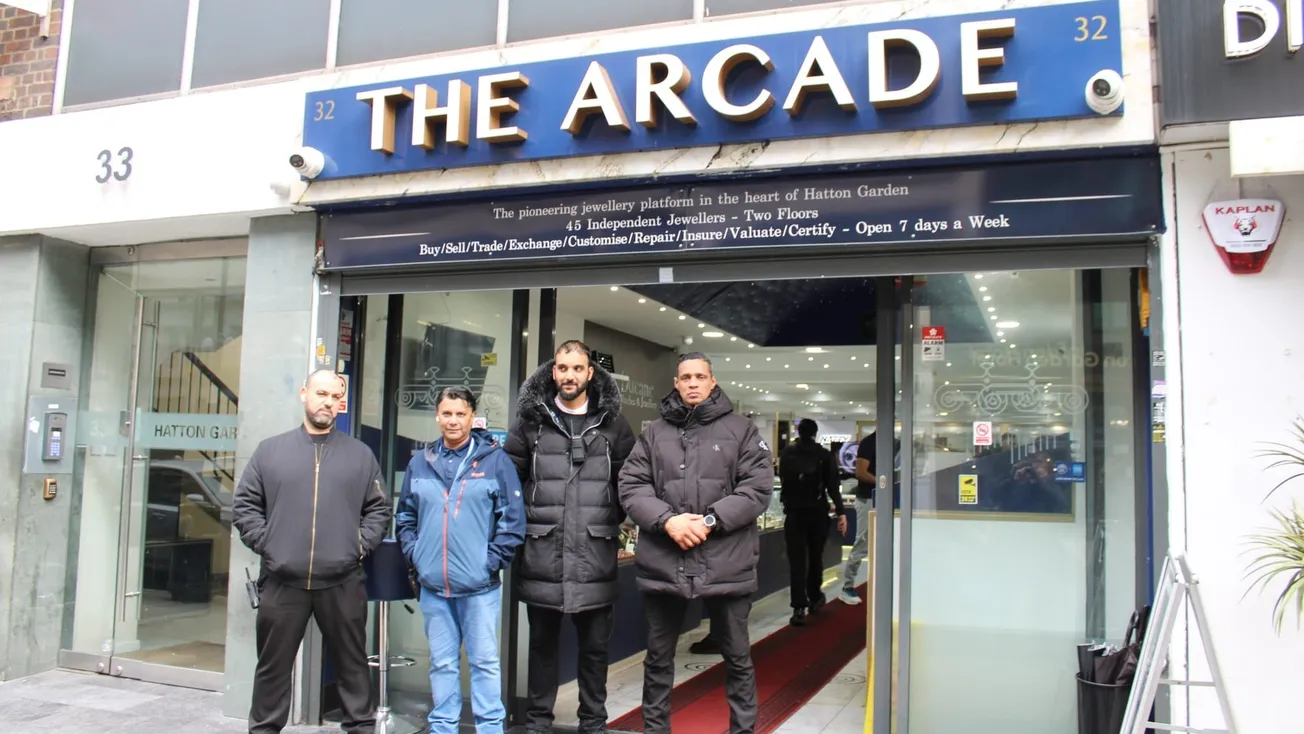Hello and welcome to The Londoner, a brand-new magazine all about the capital. Sign up to our mailing list to get two completely free editions every week: a Monday briefing, full of everything you need to know about that’s going on in the city; and a high-quality, in-depth weekend long-read.
No ads, no gimmicks: just click the button below and get our unique brand of local journalism straight to your inbox.
Happy Saturday to our lovely readers. Having a good weekend so far? Here's one way you could make ours even better: by becoming a paying supporter of The Londoner. We aren't backed by billionaires or private equity firms (as much as that might make things easier, we're fiercely devoted to our independence and integrity). But unfortunately, in-depth, legally sensitive investigations like the one below come at a large cost. That means it's only through reader subscriptions, from people exactly like you, that we can continue to exist (and continue to pay our legal fees). We aren't yet breaking even.
That's why we set ourselves the rather ambitious target of reaching 1,500 subscribers by the end of the year. It's a lofty goal — we currently have just over 1,000 paying members. But if you think the city deserves proper investigations into its most rich and powerful players, consider backing us for just £4.95 a month for the first three months. Becoming a supporter gives you access to all of the members-only content in our archive, as well as putting you at the vanguard of a media revolution. Let's do this together.
It was dawn, and a squad of police officers, fire fighters and local government investigators were massing beside the Dutch Embassy opposite Hyde Park. Their target was the elegant, whitewashed Georgian townhouse next door, almost indistinguishable from the other mansions and embassies that fill this elite corner of the capital. But when they entered 36 Hyde Park Gate, they soon found out that it was very different.
Subdivided into 22 tiny bedrooms, rented out without a licence, the property was squalid. Riddled with damp and mould, which had spread up the walls and across the broken, rotten wooden window frames, it had mushrooms sprouting on the upper floors. Tenants had been left without proper kitchen facilities and were forced to cook in their rooms using camping stoves. The building’s fire doors were defective and damaged, its fire alarms were covered with plastic bags, and burnt-out, loose electrical sockets were dotted across the property. All this, just a few steps away from the £19.5m house where Winston Churchill died.
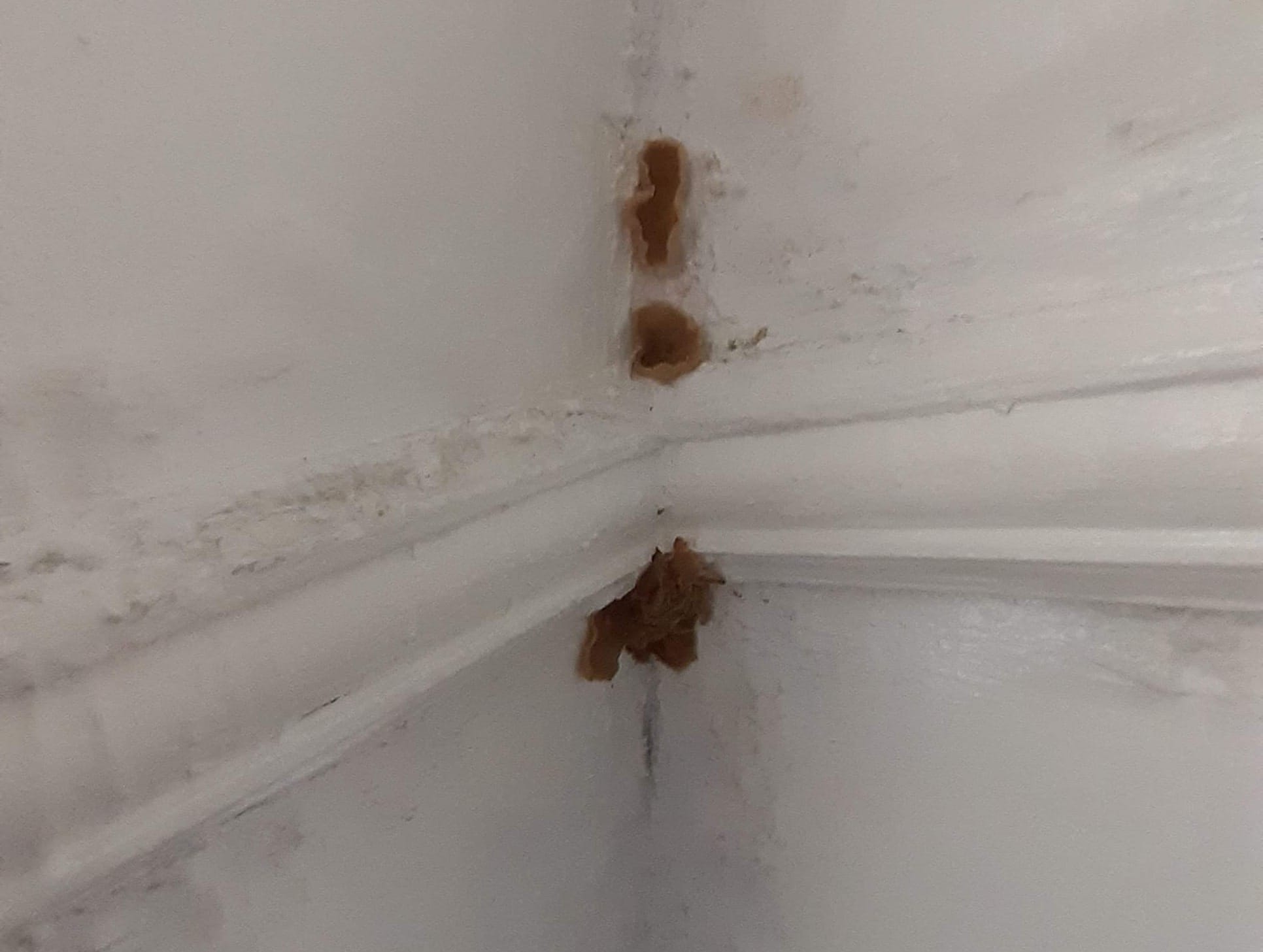
The raid was in December 2021. Two years later, the Royal Borough of Kensington and Chelsea (RBKC) slapped a £480,000 fine on Mohamed Rasool, who it identified as the building's landlord, and Blackstone Properties Management, a company where Rasool was listed as owner and director. This was the single largest fine recorded in a City Hall database of the capital’s rogue landlords, though it has now been set aside pending a mistrial hearing next summer on the alleged breaches. But how did a grand mansion on one of the city’s most exclusive streets get carved up into 22 cramped, fetid bedsits?
The answer lies with Rasool. The property’s now-cancelled fine was just one of his many unprecedented achievements: he’s the first landlord to be given an anti-social behaviour injunction for, according to Camden council, “repeated attempts to illegally evict and harass tenants”. Rasool is also one of the biggest landlords in the capital to be handed a banning order by a council and was sentenced to a two-year prison term for contempt of court. While the £480,000 fine by RBKC has been set aside, The Londoner has found that rental properties linked to Rasool and his companies have racked up hundreds of thousands of pounds in fines since 2014, even without the 36 Hyde Park Gate case.
Ever since I started reporting on housing half a decade ago, Rasool’s name was the one I heard repeatedly whispered by council officers and charity workers as one of the most notorious landlords in the city. The awful condition of some of his properties even resulted in a story in the Guardian two years ago, which called him “one of London’s worst landlords” and quoted an unnamed housing official saying “the only thing that has stopped him is prison”. Whether that is the case is hard to know. What we have learned in our investigation of Rasool’s current activities is that properties with which he has long been associated — including 36 Hyde Park Gate — are now functioning as short-term lets. And judging from his lawyers’ communications with us, he is very interested in defending his reputation.
Who is Mohamed Rasool?
Rasool claimed in court in 2022 that he rented out more than 120 properties across the capital. Records suggest he operates in what housing enforcement officers call the “shadow rental sector”: a hidden world of often unlicensed, sometimes unsafe properties, let out to some of the city’s most desperate people. Very little about this periphery of the rental market ever makes it onto public records. What little we do know of him comes from court cases, council fines and lawsuits from former tenants. The earliest one we could find dated to 2014, when a company of which he was sole director was fined £25,000 for renting out an unlicensed bedsit in Cricklewood. He’s 33 years old, and attested in one court case that he suffers from dyslexia so severe he “requires others to help him read and write”. But it’s worth noting that apart from his age, details about his life change from case to case.
One of the reasons details are so scant is that often Rasool has not been the listed owner of the properties he has rented out, leading officials to suggest he is involved in a model known as "rent-to-rent". Often, those properties would be subdivided into as many bedrooms as possible — with partition walls forced into living rooms, kitchens and bedrooms; haphazardly cut around radiators and ending in the middle of windows. The outcome — new bedrooms often barely the size of a single bed — can maximise the number of tenants and thus the rental income.
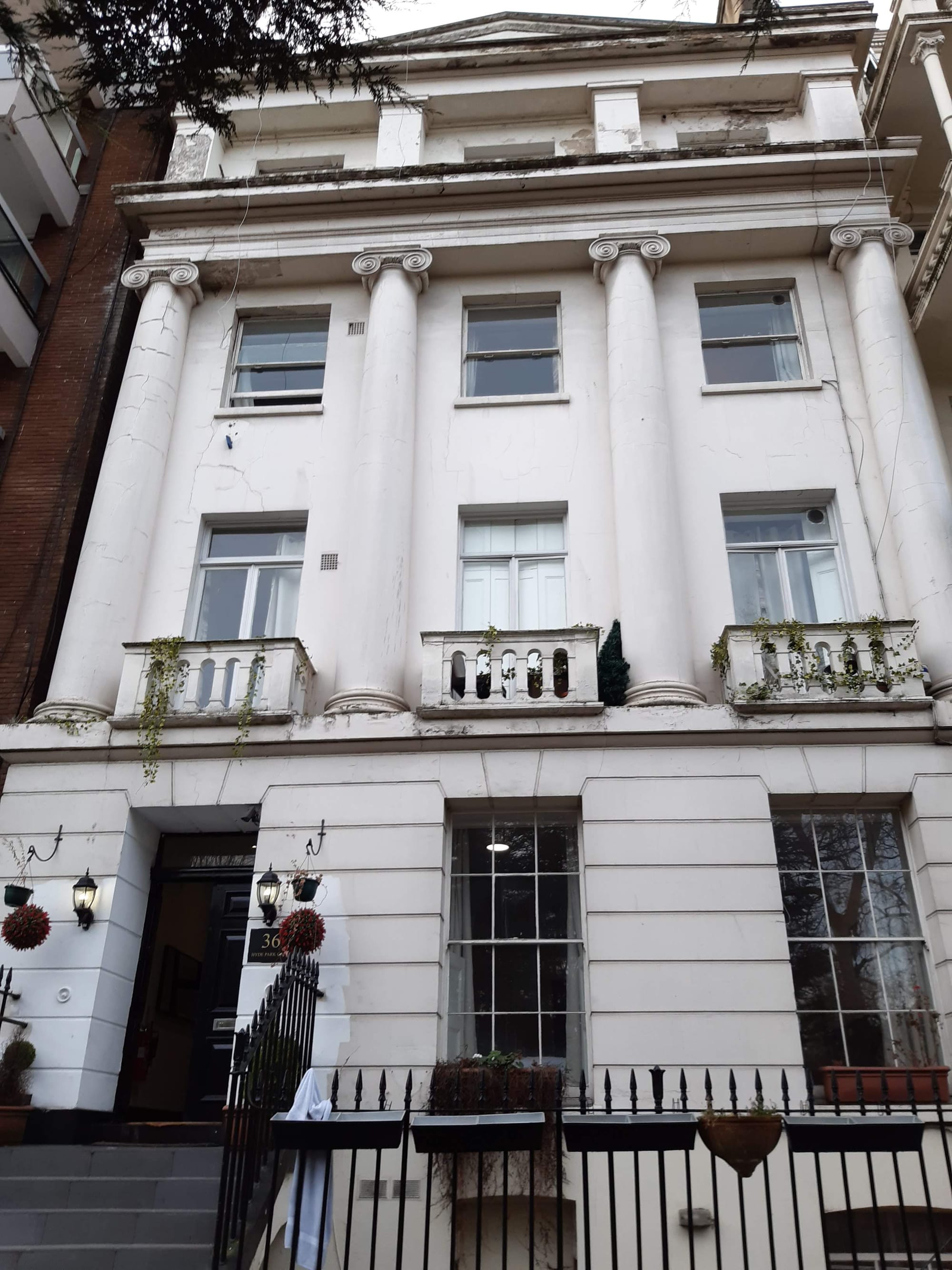
The rent-to-rent model that Rasool uses leaves little physical trail of involvement with a property, shielding any potential wrongdoing from official scrutiny. “A young person will be paid to go into a letting agent and take out a tenancy in their name,” says a senior staffer for one of London’s major estate agents who didn’t want to be named, of the rent-to-rent market. “They'll never move into it. The person who's paid them then takes over and will use that property. It’s all cash, so you can’t detect it.”
The total fines and financial penalties we’ve recorded for properties linked to Rasool, his companies and business partners total just over £555,000 since 2014, even excluding the £480,000 fine that has now been set aside.
These include fees paid to tenants of a property on the edge of Camden Town in late 2022, who took him to a housing tribunal. A small flat converted into a five-bedroom bedsit with no living room, it “was in a poor condition throughout, with significant fire safety hazards”, according to Camden council. One day, the tenants reported that its faulty electrical supply “electrified” the shower room as one of the tenants was inside, forcing paramedics to be called out. The tribunal ordered £5,444 of rental payments to be repaid to the tenants, on top of an £135,000 fine already levied by the council on Rasool’s firm and his business partner.
The year before, Camden secured an anti-social behaviour injunction against Rasool — the council proclaimed it the first in the country against a landlord — and an “exclusion zone” around the house after he reportedly made “repeated attempts to illegally evict and harass tenants at a property he owns in Kilburn” (something Rasool denies). The pressure tactic was far from an isolated incident; in another case, which featured in the Guardian’s story, he forced a tenant out by removing her toilet.
Over in West Hampstead, another property linked to Rasool on Pandora Road was converted from a seven bedroom house into 16 “studio” flats, some as small as 8 sq metres. The property was fined £130,000 back in 2019 for its lack of a HMO licence and tiny rooms — and a list of other hazards. Three years later, Camden council secured a banning order against Rasool over the unsolved problems at the address, which in theory would stop him from renting out any properties in England for the next five years.
Maybe the biggest case involving Rasool was held in the Royal Courts of Justice in December 2021. He was facing a lawsuit from Paddington Company One, the owner of a property in Betula House, part of the luxurious Paddington Basin development. Claiming to have been illegally evicted, Rasool said he had been the tenant of the flat since 2019 and sought an emergency injunction, a legal tool designed to help tenants who have been illegally evicted get back into their properties. This came as a surprise to the property owners, who said they had last let out the property to a company called Rami News, which had left six months earlier.
It was during that case that the judge discovered that this wasn’t the first time Rasool had used this tactic, although the records don’t explain why he was doing so. He had filed three similar injunction claims, alleging he and his sister were the unlawfully evicted tenants of a property in Mayfair, one in Knightsbridge and even one on Oxford Street, which he claimed he had lived in since 2000. In one of those cases, the court heard that he submitted a witness statement where he claimed that he had been “forced to sleep with friends and have been forced to be assisted by a nearby charity”.

“Mr Rasool’s latest witness statement indicates that none of this was actually the case,” the judge in the Paddington case concluded. He was subsequently tried for contempt of court the next year over the injunctions he filed. The judge for that case was even more scathing, calling Rasool “thoroughly dishonest” and “an intelligent and calculating individual” whose statements to the court were “full of lies”. That ruling would see him handed the two-year jail sentence and a civil restraint order, which bans him from making court applications without the express permission of a judge.
“In 35 years, I can confidently say I’ve never seen anyone like Rasool,” says Ben Reeve-Lewis, a veteran of housing enforcement and the co-founder of Safer Renting, a charity that specialises in supporting victims of illegal eviction. The charity has handled countless cases involving Rasool in recent years. “It's almost comical,” he says. “We would just think: ‘What is he going to do now?’” Despite spending half a decade dealing with the damage left in Rasool’s wake, Reeve-Lewis has never met him. “He’s this legendary character I’ve yet to see,” he explains.
Moving in next door
It was on his first visit to his new home that Patrick Orme first noticed something was off about the building next door. It was October 2023, and Orme was about to move to a new home in West Hampstead with his partner when he noticed more than a dozen doorbells in the doorway of his neighbour’s house. After a look at Google, he swiftly realised the house was the Pandora Road property that Rasool had been fined for over the year before. He instantly recognised the name — then a staffer at Safer Renting, Orme had been involved in investigating another one of the landlord’s properties. “My first thought was: ‘Oh God’,” he tells me. After looking on the Land Registry, he found it was listed as being owned by a British Virgin Islands-based firm controlled by members of Rasool’s family.
For the next few months, Orme claims he would see people hauling suitcases up to the door, struggling to get in and frantically making calls, before leaving in frustration. After speaking to some of them, he says he was told that the once unlicensed 16-person bedsit was seemingly now being used as a holiday let. Orme’s testimony was among the first clues that since Rasool’s jailing, some of the properties that were once linked to him may now be getting used as short-term lets — where rules about HMO licences, tenancy protections and unlawful evictions don’t apply.
But there was very little public information about who is behind these new short-term lets, and if they have links to Rasool. A spokesperson for Camden council told The Londoner that its banning order on Rasool operating as a landlord didn’t cover short-term lets. In theory, these are governed by a law that stops you letting them out for more than 90 days a year, but according to the council “multiple listings, false addresses and different photographs for the same property” makes enforcement extremely difficult.
I wanted to find out more. So on a blustery night last week, I made the trek out to the mansion by Hyde Park — site of the dawn raid — to see one of properties authorities had linked to Rasool.
A trip to Kensington
After sunset, 36 Hyde Park Gate, with its darkened rooms and chipped exterior, seems to loom forebodingly over the pavement. On the Land Registry, the property is listed as being owned by the same company since 1993. Seven years before it was left facing a record fine, it had already been the subject of an earlier council prosecution. The list of charges made then echoes the more recent one: 18 people, mostly migrants working at local hotels, crammed into “slum-like” rooms, often with no lighting, sharing one kitchen. One difference was that the property was, at that time, listed in the name of Abbas Rasul, Rasool’s father. He did not appear in court.

According to Google, nine hotels are now registered at the address. Most have less than flattering reviews. “Mould in the rooms. Water leaking in the rooms... Worst stay of my life,” one reads. “[I] arrived at the hotel to find lots of people waiting only to be told they had no place to stay or had not paid even though we all had confirmation of the payment and booking,” says another. I knocked on the door, but no-one answered, and the neighbours I spoke to knew nothing about who stayed there.
Just as I turned my back to walk away, something made me take one final glance at the house. And that was when I noticed the door was now open. In the entrance hall I saw line after line of the key lockboxes typically used for short-stay rentals, and next to them was a family of four. I strode over, somewhat startling Miguel, one of the two sons of the family, and the best English speaker. He told me they had made their booking online, and were worried they would never be able to get into their rooms as the owner had stopped taking their calls (though eventually they did find a way in).
Sorry to interrupt — we promise we'll be quick. We just wanted to take you on a quick behind-the-scenes of what we do. Investigations, like the one you're now reading, take old-fashioned, boots-on-the-ground journalism. We go to places, meet people and pore over sources and reports. But this sort of in-depth journalism doesn't come cheap — especially when you're dealing with legal threats levied by some of the most powerful people in the capital. That's why a lot of media companies have given up on it, instead churning out clickbait articles that have little connection to London or those who live here. But we believe people are still willing to pay for meticulously researched, properly reported work.
Already, just over 1,000 of you have signed up as paying members to prove us right. But now we have a big target: 1,500 members. We've made it easy too: with our new member discount, a Londoner membership is just £1.25 a week. That's less than a daily coffee.
We aren't funded by billionaire oligarchs or huge companies. And that means we need the people of London and beyond. If you like what we're doing, please consider supporting us.
Five minutes later, they tracked me down at a nearby bus station: they wanted to make sure they weren’t in trouble, that they hadn’t somehow broken the law by booking into the building. I did my best to reassure Miguel that they were fine, but left with the gnawing feeling that I may have cast a cloud over their holiday.
Next came a much bigger challenge — I needed to try to get answers from the man himself. Rasool and his companies have no public presence, no social media or website through which to contact them. I would need to find him in person. In legal cases and on Companies House, Rasool has listed dozens of addresses, and been reprimanded by a judge for giving incorrect home addresses in court. Many were just PO Boxes, or in one case, a “virtual office” registered at an address in Old Street that Companies House says is home to at least 9,757 dissolved and active companies. I had emailed both Rasool’s lawyers and an estate agent he worked with, but neither would share contact details — the former citing “lawyer client confidentiality” and latter claiming that their information was out of date.
The property listed as a home address in multiple council legal documents is a house on Manor House Drive in Kilburn. When I visited the gated detached home on a leafy sidestreet with a Porsche sitting out front, an elderly woman came to the door. I asked her whether Mohamed Rasool lived there or if she knew him, but she repeatedly said she did not speak English. I left a letter seeking comment on our findings in the letter box.
That final step seemed to pay off. Despite, from what we can tell, never engaging with the media before, we soon received a letter from Rasool’s lawyers threatening The Londoner with a defamation lawsuit if we were to publish our story. They insisted that their client currently “has no managerial or ownership role” of the Hyde Park Gate property “and has not done so for several years” and contested the description of conditions outlined by RBKC. They also insisted that despite his multiple prosecutions by Camden council related to the property, he also plays no current role in the ownership or management of the Pandora Road house that Orme moved in next to and “bears no responsibility for any subsequent re-letting”. They also said Rasool “categorically denies any act of unlawful eviction”, and suggested he was not involved in “rent to rent”, and that at least one of the other prosecutions against Rasool was still ongoing.
They added that the judge’s remarks in the contempt case were “wholly out of context” and that Rasool “denies making the claim that he was “forced to sleep with friends” that the judge described in the court case. We reached out repeatedly to the lawyers for clarification on the denials above but as of publication received no response.
In a city with a neverending cascade of stories about slum housing, it’s notable that Rasool stands out as one of the city’s worst landlords. Experts in the housing sector seem unsurprised that he’s undeterred by fines and penalties. “Most people kind of try to cover their backs and hide it. He doesn't seem to care,” says Reeve-Lewis.
If you enjoyed this piece and want to be sent more in-depth investigations and features, why not join up as a Londoner member today? This means you'll get weekend long reads like our piece profiling the capital's early birds commuters and Monday briefings like our update on our story about the penguins trapped beneath Southbank delivered straight to your inbox.
No ads, no gimmicks: just click the button below and get two high-quality pieces of local journalism each week, all for free.
If you’d like to sponsor editions of The Londoner and reach over 20,000 readers, you can get in touch or visit our advertising page below


